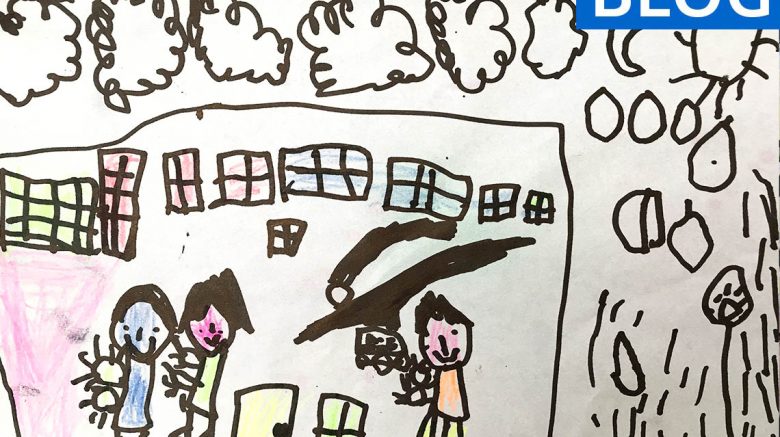Childhood, as a social construct resulting from historical, political, cultural and family transformations, let us perceive cultural differences and recognize children as subjects with rights who live in different contexts or, even when living in the same territory, find themselves in different situations from others (Unda and Llanos, 2013). In this sense, in order to make progress in recognising children from the perspectives of their rights and the legitimacy of those rights, we need to understand that childhood, as a social, historical, cultural, dynamic and heterogeneous construct, cannot be homogeneous.
Recognizing children as subjects with rights, who go through many different life experiences and situations, implies understanding that a child with an illness or a condition requires the assistance of significant adults –healthcare providers, caregivers, fathers, mothers, teachers, among others–, who foster spaces to reclaim his or her self, not only as a body that needs treatment to recover from an illness, but also as a whole body going through a life experience.
When a child stays for long periods of time in a hospital context –clinics, hospitals, home hospitalization–, this situation takes a toll on their daily life, since, to them, their illness is not a source of knowledge, scientific reflexion and intervention, but rather an unsettling agent in their life experience, because there are changes in their lifestyle (schooling, mood, interpersonal relationships, construction of identity, among others.) In many countries, when a child is at hospital, his or her right to education is denied, given that there is not a teacher to provide pedagogical support in order to foster educational experiences that encourage learning and development.
According to Lizasoain (2007):
Children who have chronic diseases are often subjected to repeated hospitalizations and have to face not only the fear or pain of the medical procedures, but also the issue of hospitalization and lack of a normal life. In this sense, most research shows that behavioral, emotional and cognitive alterations are frequent among paediatric patients, and agree with the idea that children’s hospitalization is a stressful experience (p. 4-5).
Considering what was mentioned above, in the city of Medellín, Colombia, significant experiences are being developed regarding pedagogical support for children with medical needs, within the pedagogical practices of the Bachelor’s degree in Early Childhood Education from the Antioquia Institute of Technology (University Institution). This institution has allowed the materialization of the right to education through pedagogical and didactic interventions based on games, arts and participation, with the aim of creating spaces that stimulate socialization, affection, communication, bodywork, cognitive processes, among others.
These experiences have allowed hospital contexts, which have opened their doors to foster learning environments, to become warm spaces that recognize the right children have to rest, relax, play, take part in recreational activities, cultural life and the arts, as well as spaces to narrate their life and learning experiences. As regards this, children express their voices and feelings, which indicates that continuing to participate in educational and playful activities makes them feel happier and calmer, and helps their healing process.
As a field of knowledge, formed by discourses, knowledge and practices around the acknowledgement that children in a situation or condition of illness are subjects with rights, hospital pedagogy is not only a possibility to continue educational processes, but also an educational practice that recognizes children as whole and multidimensional beings, from a perspective of caring for others.
As an educational practice, hospital pedagogy has the challenge of creating spaces to reflect on and raise awareness of the role of caregivers regarding learning-experiences that children have in a situation or condition of illness, in order to enable a childhood narrative that explains their development as active, assertive and reflective subjects who are aware of their possibilities of being and living in different places and contexts.
For this reason, when talking about hospital settings, we are not only referring to hospitals and clinics, but rather any place that takes in a child with care and affection when he or she is going through an illness. A place where pedagogical mediations give room to the exploration of the place, artistic expressions, literature and games as guiding activities in childhood development and learning processes, making possible the construction of identities, social relationships, identification and emotional development.
Achieving a hospital pedagogy, i.e., one that takes in the others, means thinking and placing us as responsible subjects in the education and care of children from the point of view of their rights, which foster spaces to socialize through educational experiences and care that stimulate wellbeing. It is important to understand that taking care of someone goes beyond a corporeal dimension to an emotional dimension, one that listens, takes in, accompanies, provides shelter and cares about the other (Faur, 2017).
References:
Faur, E. (2017). “¿Cuidar o educar? Hacia una pedagogía del cuidado.” In Encrucijadas entre cuidar y educar. Debates y experiencias, edited by Antelo, E. and Redondo, P., pp. 87-114. Rosario: Homo Sapiens Ediciones.
Lizasoáin, O. (2007). Hacia un modo conjunto de entender la pedagogía hospitalaria. Spain: Universidad de Navarra.
Unda, R. y Llanos, D. (2013). “Producción social de infancias en contextos de cambios y transformaciones “rurbanas”.” In Pensar la infancia desde América Latina: un estado de la cuestión, edited by Llobet, V., pp. 61-77. Buenos Aires City: CLACSO.

Nadia Milena Henao García,10 years of experience in Higher Education Institutions as a teacher and researcher, and in the coordination of administrative and academic processes in the area of early childhood education. Experience as a researcher, director of degree projects, methodological and conceptual advisor of research processes and curricular designs in Childhood. Coordinator of the Childhood research line of the Senderos Group and of the Bachelor’s Degree in Early Childhood Education of the Faculty of Education and Social Sciences of the Tecnológico de Antioquia- University Institution. Junior Researcher Minciencias Colombia. Regional Coordinator Antioquia of ACDEP-OMEP (Colombian Association of Preschool Education and World Organization for Preschool Education). Coordinator of the Research Node of the Good Start Medellín Interuniversity Network. Experience as a consultant in self-assessment and quality accreditation processes in higher education.

